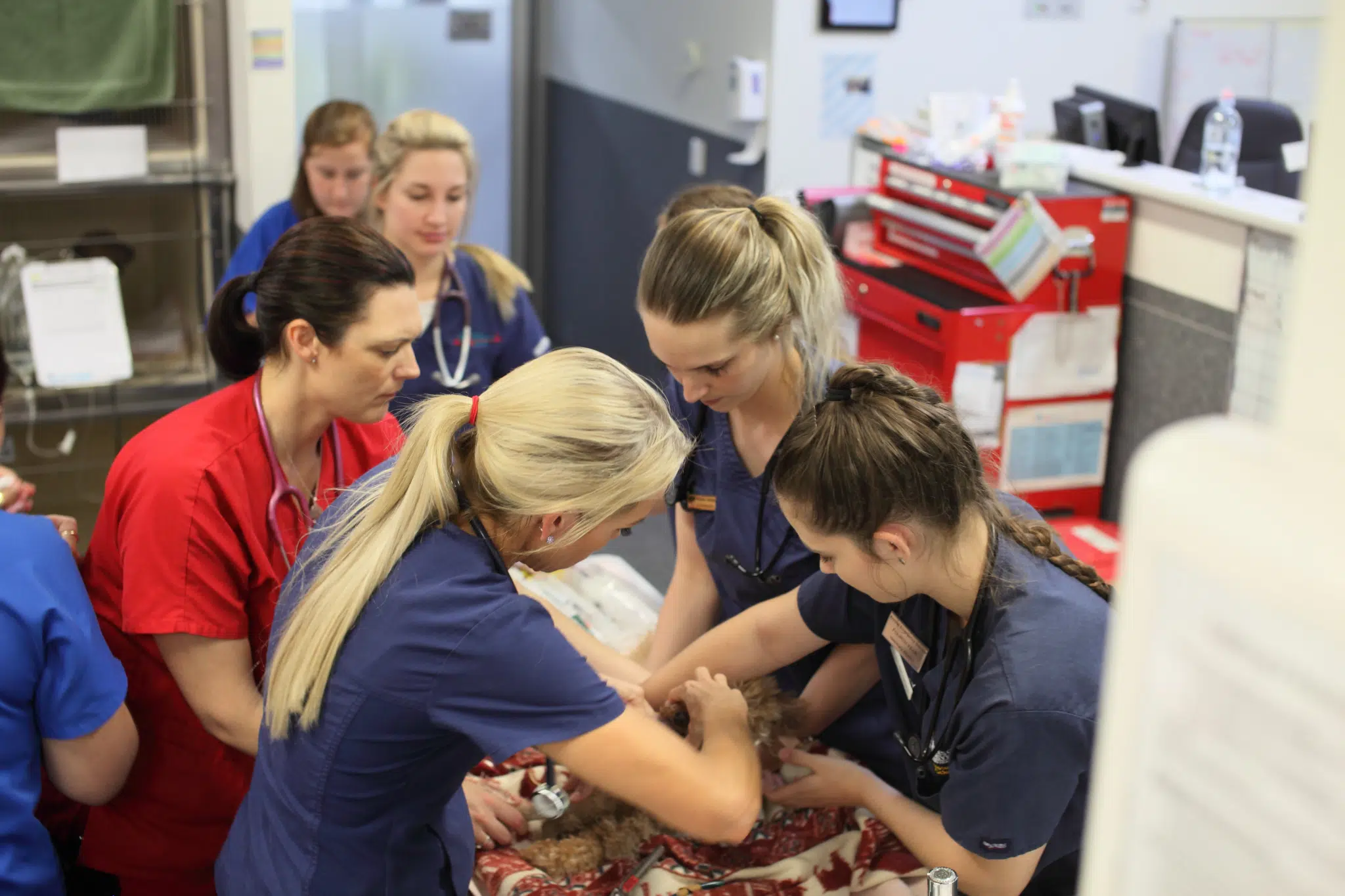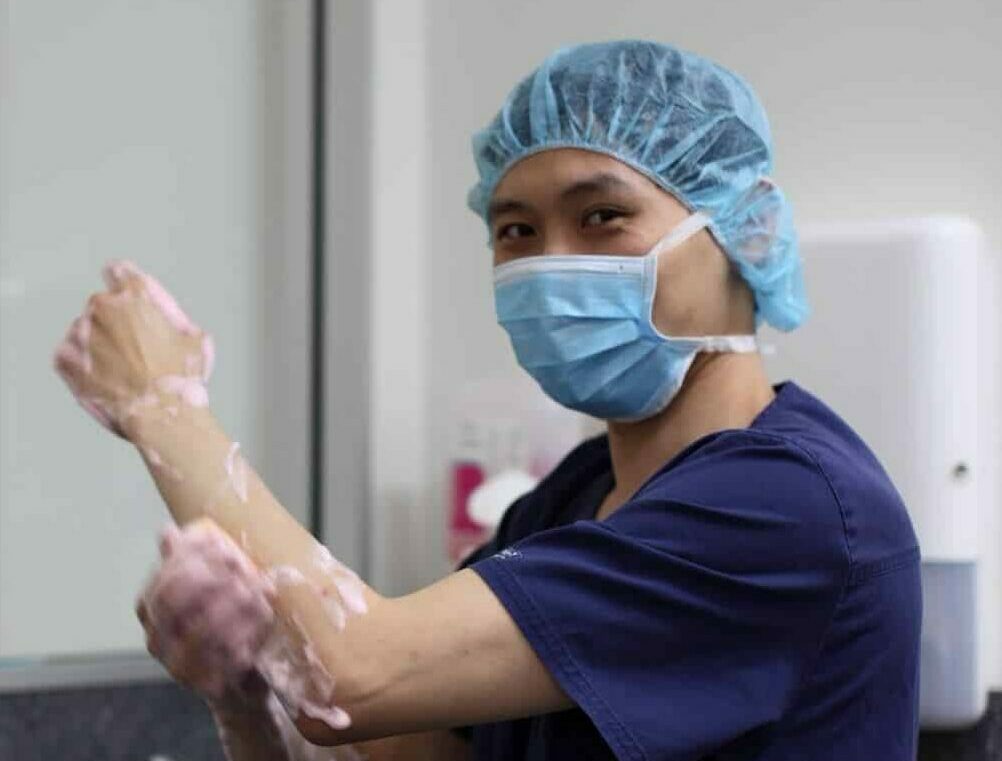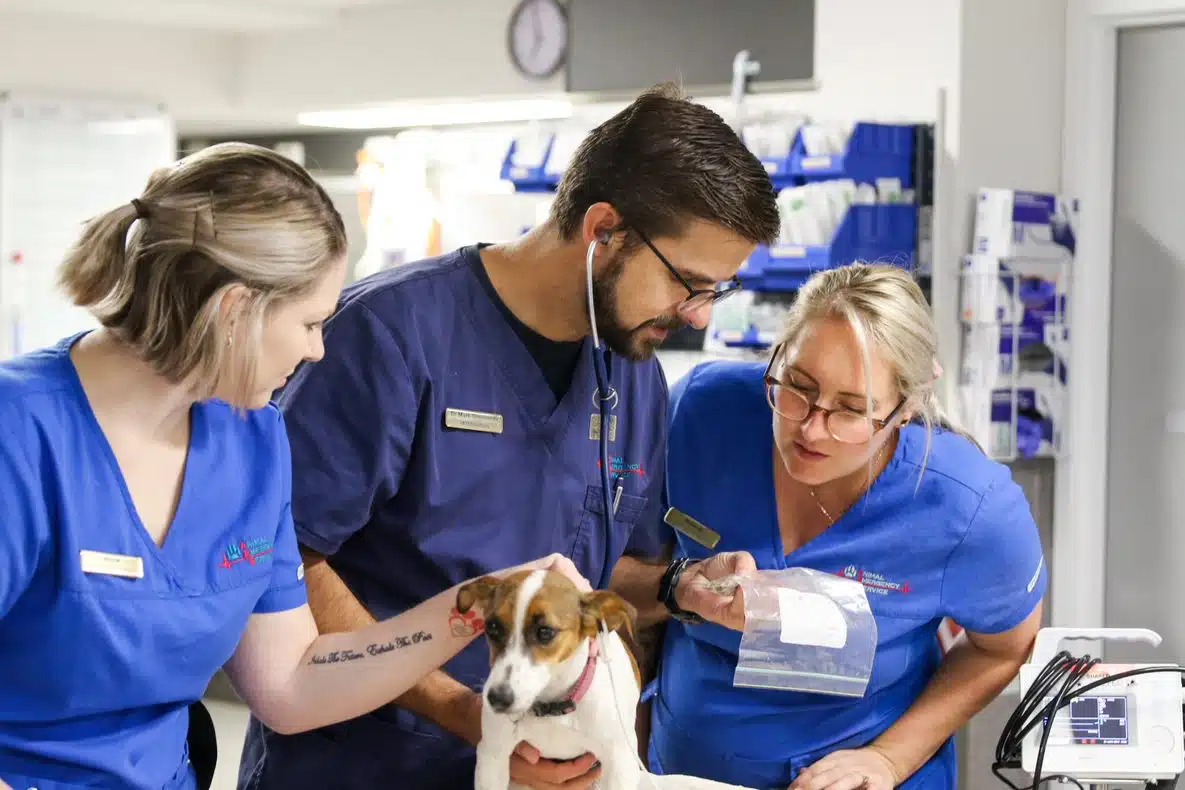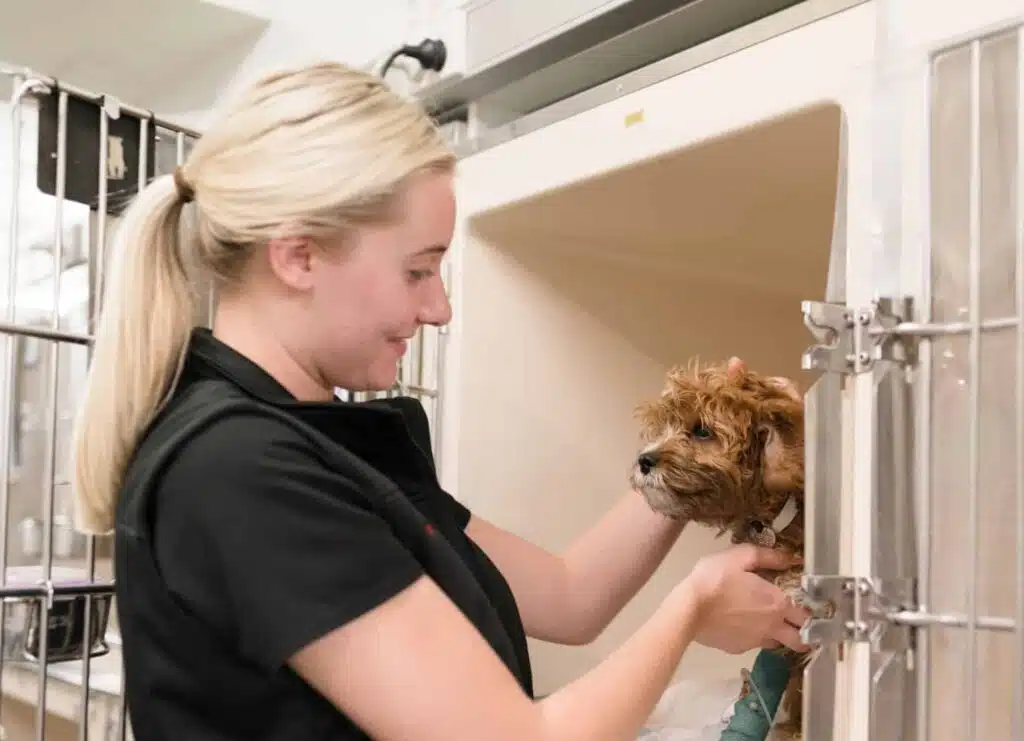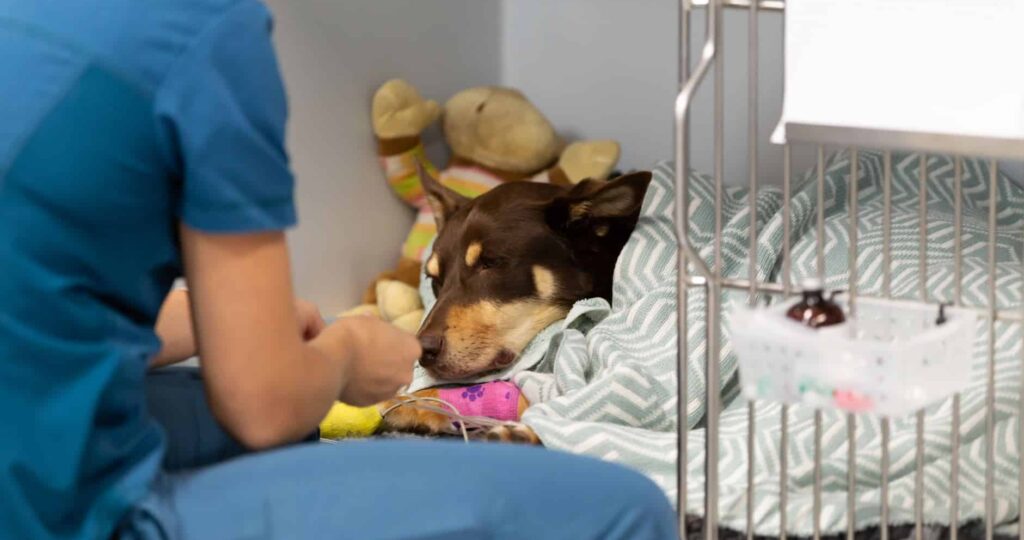If you’ve ever come across an emergency vet on social media or interacted with them in clinic, you’ve probably seen them elbow deep in a GDV surgery (literally) and thought – ‘I could never do that!’.
Sure – in an emergency, clients want their vet to be calm and experienced in dealing with whatever situation arises when their pet is in need. Does that mean you’re born ready to perform complex emergency surgeries, or experienced in stabilising critical patients straight out of vet school? Absolutely not. But before we go into the traits of great emergency vets, join AEA vets Dr Alex Hynes and Dr Gerardo Poli as they answer the question all vets want to know: “Is Emergency for You?“
“Is Emergency for You?” with Dr Alex Hynes and Dr Gerardo Poli
There are five qualities that make a great emergency vet:
- Willingness to learn
- A great attitude
- Veterinary skills
- Communication skills
- Self-belief
Now that you know if emergency is for you, let’s dive in and explore each of the qualities and how they apply to high-performing veterinarians:
1. Willingness to learn
Clients want reassurance that their veterinarian is well versed in the various emergencies they may face. Yes, this means possessing a great deal of specialist knowledge about clinical issues, and knowledge of the protocols needed to treat serious illnesses and injuries. While university may have taught the theory, will you be able to put these into practice straight out of vet school? Unlikely.
What you can’t be taught though, is a willingness to learn. As long as you are prepared to go the extra mile, learn from your colleagues and mentors, soak up every interaction and approach every patient with a curious growth mindset – you will be able to succeed.
2. A great attitude
Professionalism is essential when discussing difficult cases with clients, and a great employer will support veterinarians to develop these soft skills. Empathy is a major consideration in building trust between the veterinarian and the owner, and a lot of the time is a quality clients look for when choosing an emergency vet. A great emergency vet has a carefully considered approach to bedside manner, which means they are skilled with both animals and humans in order to help everyone feel comfortable during difficult times.
Alongside the fast pace of an emergency setting, an emergency vet won’t know what’s about to come through those hospital doors. Add on the pressure of shift work (being awake at odd hours of the day and night), and working together as a team becomes vital to successfully manage cases quickly and efficiently. Communication, teamwork, and camaraderie are important values that an emergency vet must incorporate into their work.
Overall – we call this having a great attitude. It’s your approach to clients, patients, and your colleagues that will see you thrive in your role as an emergency vet.
3. Veterinary Skills
General veterinary knowledge is continually acquired through experience in working as a general practitioner, and expanded through further education in the emergency and critical care field.
Emergency vets are often faced with the unknown – they never know what patient, illness, or injury is walking (or being carried) through the consult room door. Being able to quickly triage patients and prioritise critical patients can be the difference between life and death. With guided mentoring, practical experience and on-the-job training (truly rolling up your sleeves and getting your hands dirty), this can be easily learned and supported.
You can become great at your job just by working with animals every day. Though to be the best you can be in an emergency setting – then it’s well worth doing research around the most useful qualifications for the role. There are very few programs in Australia specifically centred around emergency and critical care courses, like our specially designed Internship and Fast-Track Program.
A supportive emergency vet employer will guide you towards the right CPD, and some companies will even pay for your placement in the right course. If you think you can’t do the job – ask yourself, how do you think your colleagues in emergency vet hospitals got to where they are today? Getting your hands dirty and rolling up your sleeves is valuable, but isn’t the only way to expand on the veterinary skills needed to thrive as an emergency vet.
4. Communication skills
Responding quickly and clearly to a client’s concerns and taking their worries seriously is important to any pet owner. The client is seeking a veterinarian’s knowledge to swiftly triage, accurately diagnose, and treat their pet in a heightened emotional setting. This means that emergency vets must have excellent communication abilities; the best emergency vets ensure their clients fully understand what will happen next, and are aware of how they will be helping the patient.
Veterinarians who have worked within general practice will have often mastered these skills, and even though the conversations in an emergency hospital situation will be slightly different – they are not unlike those in a GP setting.
5. Self-belief
When it comes to emergencies, a great emergency vet is one who will be calm under pressure and possesses the necessary skills to overcome whatever situation they face. However, it’s not just being calm – it’s also believing in yourself, and your abilities to do the job.
Ever been faced with a situation, not truly thinking you can do the task at hand, and thought to yourself – “I don’t belong here”, or “I’m not the right person to do this job”? Congratulations – you’re in exactly the right place for you, and just like 98% of us who are pushing ourselves to be our best, you’re facing the challenge of imposter syndrome.
Firstly – and we know it’s a cliche, but growth doesn’t come from staying in your comfort zone. Secondly, if you’re in the right place – at some point in your career, having imposter syndrome moments is actually a good thing. It means that you’re growing, learning, taking the next step, and becoming a leader in your field. The trick is, as Dr Alex Hynes says in her talk about imposter syndrome – not to let imposter syndrome moments let you lead an imposter syndrome life.
TL;DR (too long, didn’t read)
If you have a passion for animals, but are worried you don’t know enough to be an emergency vet – don’t be. All it takes is the willingness to learn, the right attitude, basic veterinary skills, great communication skills, and finally; to believe in yourself.
At Animal Emergency Australia we provide top-notch care from head to tail on all types of pets and, we look after our team like family. If you’re looking to join a team of great emergency veterinarians, get in touch with us today!

